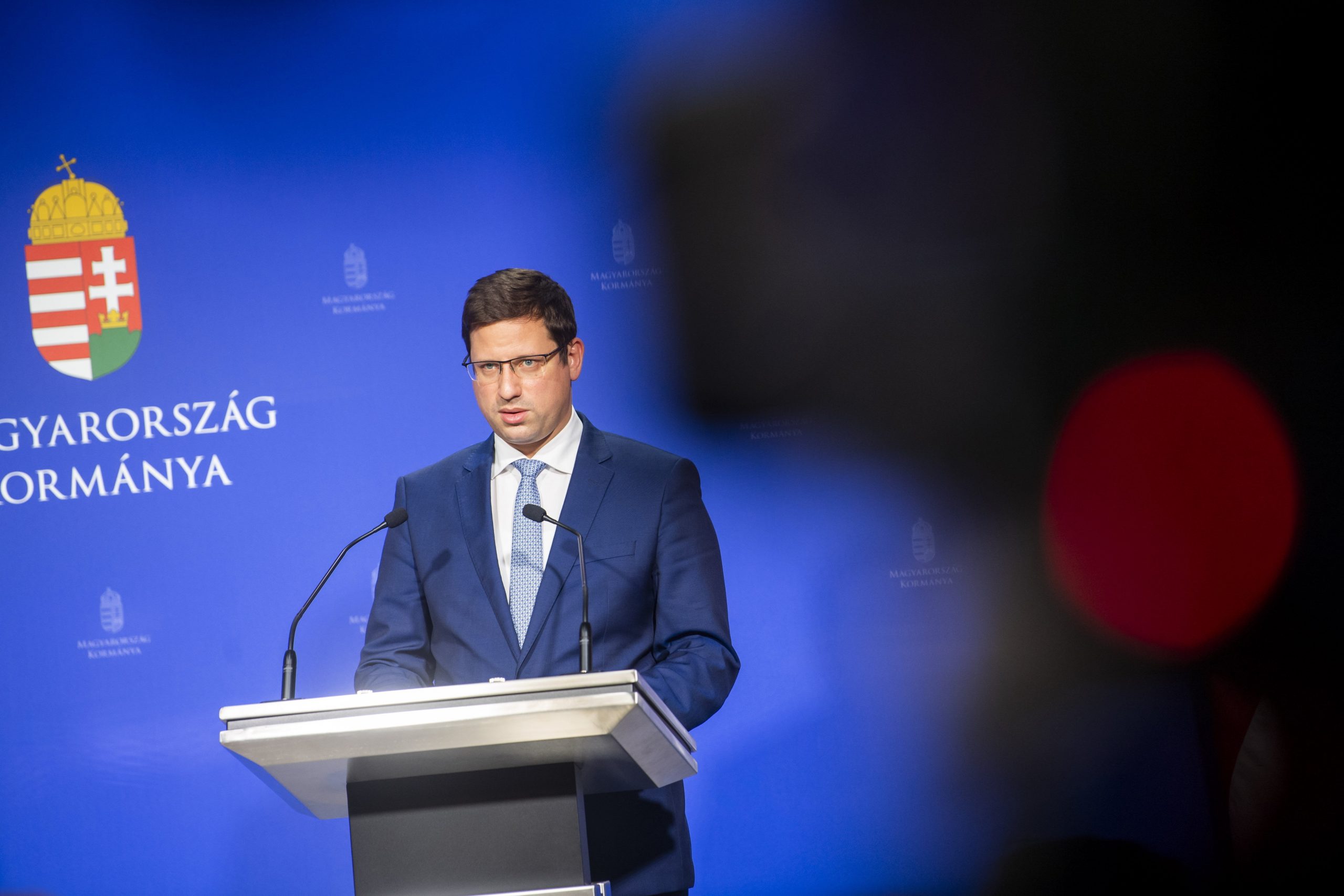
Viktor Orbán said in Berlin that the policy is primitive in its implementation and disastrous in its impact.Continue reading

The Minister heading the Prime Minister’s Office said that teachers can expect an unprecedented wage hike in the next three years, but the European Commission also has a role to play in this.
Hungary is seeking a fair agreement with the European Commission and the government is fully determined to deliver on its commitments, Gergely Gulyás, the Minister heading the Prime Minister’s Office said at his weekly press conference on Thursday.
He said that if they reach an agreement on EU funding currently withheld due to the rule-of-law conditionality mechanism, an unprecedented wage hike awaits educators.
According to MTI, Gulyás said that the government is hoping to raise teachers’ wages to 80 percent of the average salary of university graduates by 2025. Wages may be raised by 21 percent in January 2023, by 25 percent in 2024, and by 29-30 percent in the two subsequent years, he said. In 2025, the average graduate salary is expected to be around 972,000 forints (2,253 euros) gross, with teachers likely to earn 778,000 on average.
Gulyás added that even without EU funding, the government would hike teachers’ wages by 10 percent next year.
Meanwhile, the government has agreed with the European Union to take 17 measures, mostly in connection with the public procurement system, the Minister explained.
The proportion of single-bid procurements will be reduced and cooperation with the European Union’s anti-corruption taskforce OLAF intensified, Gulyás said, according to MTI.
Prime Minister Viktor Orbán wrote a letter to EU leaders, thanking them for their decision to extend the deadlines, Gulyás revealed. Hungary is striving for a fair agreement, and the government is totally committed to fulfilling its pledges, he added.
Hungary’s energy supply is secure, Gulyás said, adding that Hungary has significant storage capacities and high storage levels, and it has also made significant gas purchases. Skyrocketing energy prices in Europe have triggered inflation and exchange rate problems in Hungary, he said. Europe faces two major challenges: the availability and the price of energy, especially natural gas. Prices are exorbitantly high and energy is not always and necessarily available from its usual sources, he added. The current crisis has underlined the need to enact several changes in Hungary’s energy system.
Commenting on the national consultation, questionnaires that will be sent to households on Friday, he said the public survey of opinions on sanctions against Russia serve as a good example to the rest of Europe.
Featured photo via MTI/Balogh Zoltán